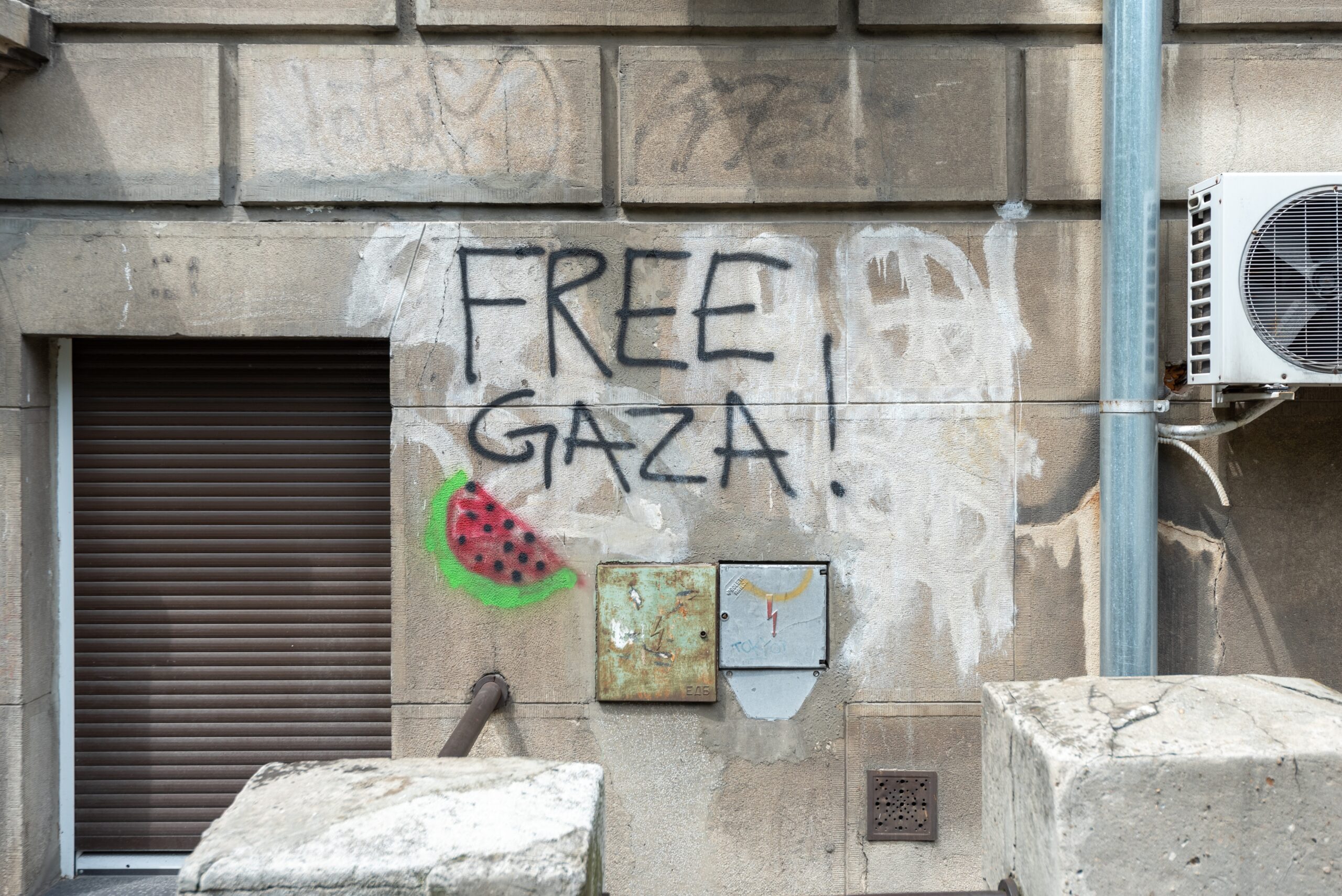There is a disturbing and too-little-covered surge in anti-Israel activity that is also targeting Christian churches — carried out not only by Islamist groups, but by broader ideological movements that weaponize Christian spaces for their anti-Zionist cause.
In Germany’s Vogelsberg district, anti-Israel protesters vandalized a historic Protestant church. According to reports, a wooden crucifix more than 200 years old was defaced with graffiti: “Free Palestine” and “Jesus is Palestinian” were scrawled on the walls. Pastor Ingmar Bartsch said the damage left a “psychological scar” on his congregation.
In Greece, too, a church in Athens was defaced in May with anti-Israel and antisemitic graffiti. Local authorities reported slogans condemning Israel, praising Hamas, and even explicitly attacking Israeli soldiers.
Even in Jerusalem, within the Old City, a man was arrested after allegedly spray-painting “there is a holocaust in Gaza” onto the walls of the Church of the Holy Sepulchre.
One might assume that anti-Zionist movements — especially those tied to Islamist ideology — would avoid Christian spaces. But what we are seeing is something more deliberate: Christian institutions are being used as stages in the broader ideological conflict over Israel.
In Germany, the Catholic Archdiocese of Berlin has responded strongly. It announced that all candidates for leadership within the Church must sign a pledge rejecting racism, antisemitism, or extremist views — including anti-Israel extremism. Marcel Hoyer, the director of the diocesan committee, said it’s essential that such extremist statements never come from those in Church leadership.
These incidents are not random acts of vandalism. They reflect a growing convergence of anti-Israel sentiment and radical ideology, which is now spilling over into Christian sacred spaces. For the perpetrators, targeting a church — defacing a crucifix, spray-painting walls — offers powerful symbolic leverage. It equates Israel with religious wrongdoing and projects the conflict as one not only with Jews, but with Christendom.
Germany is also coping with a rise in Islamism. Last week, the German government banned Muslim Interaktiv over accusations of violating human rights and the country’s democratic values, and conducted raids against two other Muslim groups. The government claimed the groups represented a threat to the country’s constitutional order by promoting antisemitism and discrimination against women and sexual minorities. The latest crackdown comes after a spate of attacks by Muslim extremists and far-right groups plotting to overturn the country’s order.




